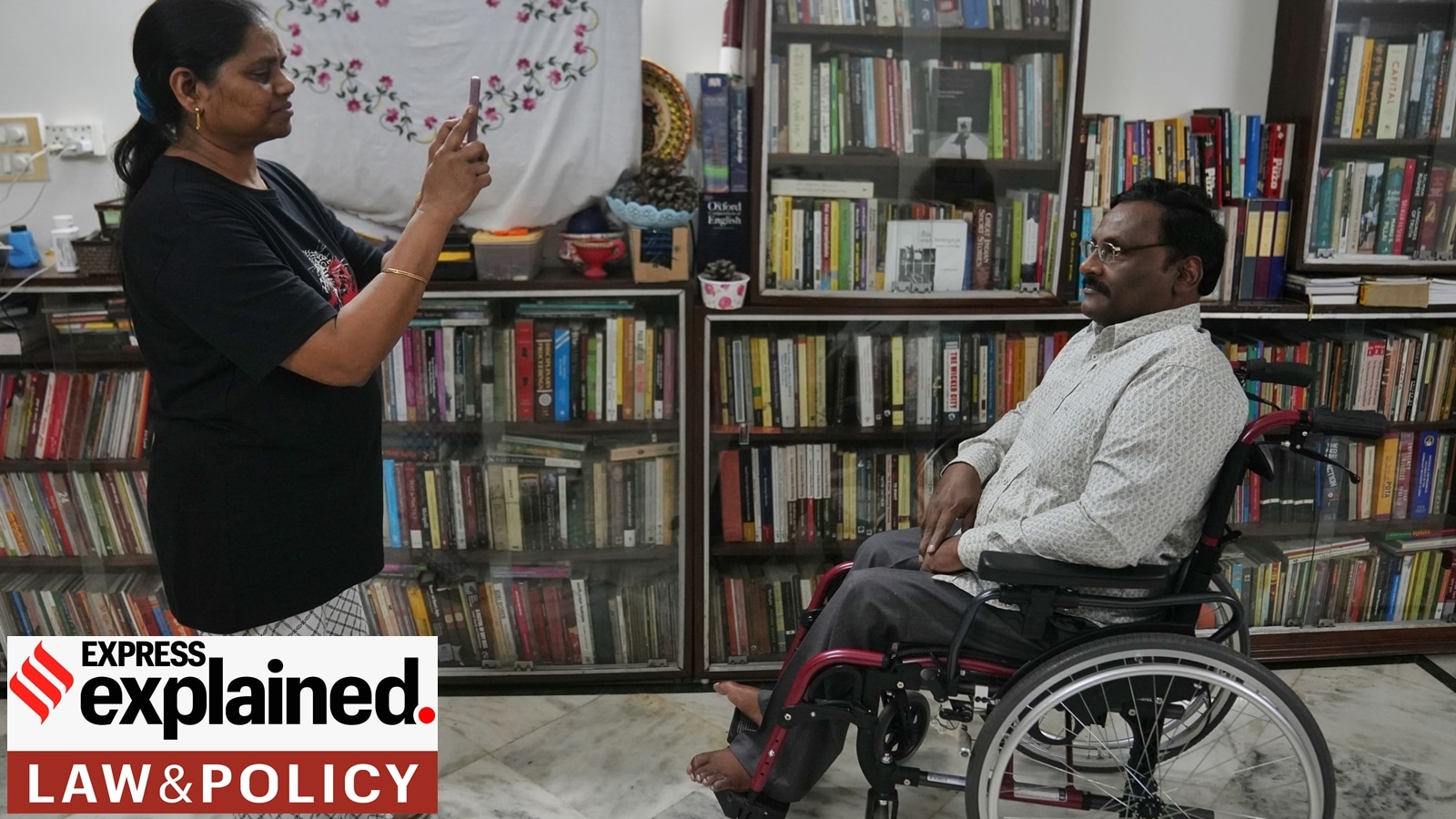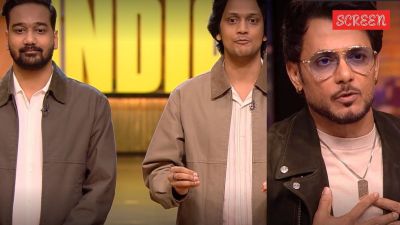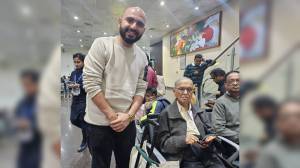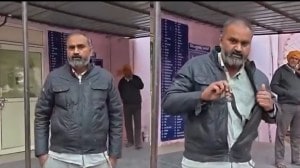Seven months after he was cleared of all charges of alleged Maoist links and released from jail after nearly a decade, former Delhi University professor G N Saibaba passed away on Saturday in a Hyderabad hospital, where he was undergoing treatment.
The 57-year-old had a 90 per cent disability due to a polio infection contracted during his childhood, leaving him paralysed from the waist down. Upon his release from Nagpur jail on March 7, he spoke about the health complications he faced while incarcerated. During that period, Saibaba’s family and lawyers often raised concerns and made applications in court about his deteriorating health and the delays in treatment.

The case and conviction
On September 12, 2013, a team of Maharashtra police raided Saibaba’s residence in Delhi, where he was an assistant professor at Ram Lal Anand College. Police arrested him on May 9, 2014, claiming he was an active member of the banned organisation Communist Party of India (Maoist) (CPI-M). Five others were arrested as well.
The police claimed they were all CPI-M members who hatched a criminal conspiracy to wage war against the Government of India through unlawful activities by use of violence. It alleged that Saibaba was found to possess documents and electronic gadgets, containing Maoist literature, correspondence between members, and video clips of their meetings.
On March 7, 2017, Saibaba and five others were found guilty by the sessions court under various charges, including the anti-terror law Unlawful Activities (Prevention) Act (UAPA). He was sentenced to life imprisonment.
The court said that though the wheelchair-bound Saibaba was disabled, there was no ground to show him leniency as he was “mentally fit” and a “think tank and high-profile leader” of CPI-M. His lawyers argued that the entire trial was vitiated, as the mandatory sanction necessary to prosecute an accused under UAPA was only granted after trial began. However, the court did not consider this valid. An appeal was then filed before the Bombay High Court.
The first acquittal
On October 14, 2022, Saibaba and his co-accused were cleared of all charges by the Nagpur bench of the Bombay High Court.
Story continues below this ad
The court noted various faults in the procedure followed by the investigating agency concerning the grant of sanction under UAPA. It held that the proceedings before the trial court were “null and void”, as there was no valid sanction. Even as the police argued that the invalidity or absence of the sanction is a “curable defect”, the court held that every legislatively provided safeguard, however minuscule, must be “zealously protected”.
The court held that the sanction to prosecute Saibaba was received on April 6, 2015. By this time, the court had already framed charges against the accused and examined the first witness. Section 45(1) of UAPA states that no court shall take cognizance of any offence under UAPA without the previous sanction of the central or state government or any officer authorised by it.
The Act also states that an authority appointed by the government shall make an independent review of the evidence, before recommending if a sanction can be granted. The high court dealt in detail with the legislature’s intent in inserting the requirement of a sanction, and the necessity of an independent review.
“The siren song that the end justifies the means, and that the procedural safeguards are subservient to the overwhelming need to ensure that the accused is prosecuted and punished, must be muzzled by the voice of Rule of Law,” the division bench of Justices Rohit Deo and Anil Pansare said. The court said it was also conscious of the death of one accused person, named Pandu Narote, during the pendency of the appeal while in judicial custody in 2022, after he contracted swine flu. His appeal was also allowed.
Story continues below this ad
Long wait for release
After the high court order was pronounced on October 14, 2022, on a Friday morning, the Maharashtra government immediately moved an urgent appeal before the Supreme Court by that evening, mentioned by the Solicitor General of India. By then, family members of those cleared of the charges, including Saibaba, had begun with the release formalities at Nagpur jail.
Arrangements for an unprecedented special sitting were made and the matter was listed on Saturday, a non-working day. A bench comprising Justice M R Shah and Justice Bela Trivedi suspended the high court order, stating that the decision to clear the accused on the grounds of invalid sanction needed to be considered in detail.
Saibaba’s lawyers argued that even as the court suspended the order, it could have granted him bail pending proceedings, considering his medical condition. However, the court refused.
Six months later, on April 19, 2023, the Supreme Court sent back the case to the high court to consider all issues raised in the appeal and decide the case on merits. The state had argued that the high court did not consider merits in its previous order.
Story continues below this ad
The second acquittal
Nearly a year later, the high court again acquitted Saibaba and others on March 5, 2024, observing that holding a trial under UAPA without adhering to procedural requirements would amount to a “failure to justice”.
While holding the sanction as invalid, the court said that the independent authority, the Directorate of Prosecution, had only given a “half-page communication” to justify the recommendation to grant sanction. On Saibaba, it said, “In sum and substance, the prosecution against accused No.6 G.N. Saibaba for want of valid sanction is also totally vitiated.”
The court also questioned the credibility of his house being searched. It noted that the police chose an illiterate person to be an independent ‘panch’ — a witness mandated to be present during search procedures — though many “highly educated witnesses” would have been available, his residence being on a university campus. Further, the police had not proved any conspiracy to commit a terrorist act. He was then released.
Pleas on health grounds
As early as a year after his arrest, Saibaba’s lawyers submitted that he had faced health complications, including in his kidney and gallbladder. He was granted temporary bail by the High Court in June 2015 on medical grounds, saying that if not released, there was a chance that his life would be at risk. In December, he was directed to surrender himself to Nagpur jail.
Story continues below this ad
In 2016, the SC granted bail again, considering his medical condition, and said that the state opposing his bail was “extremely unfair” as he had never misused his bail previously. Following his conviction under UAPA, Saibaba was arrested again.








































